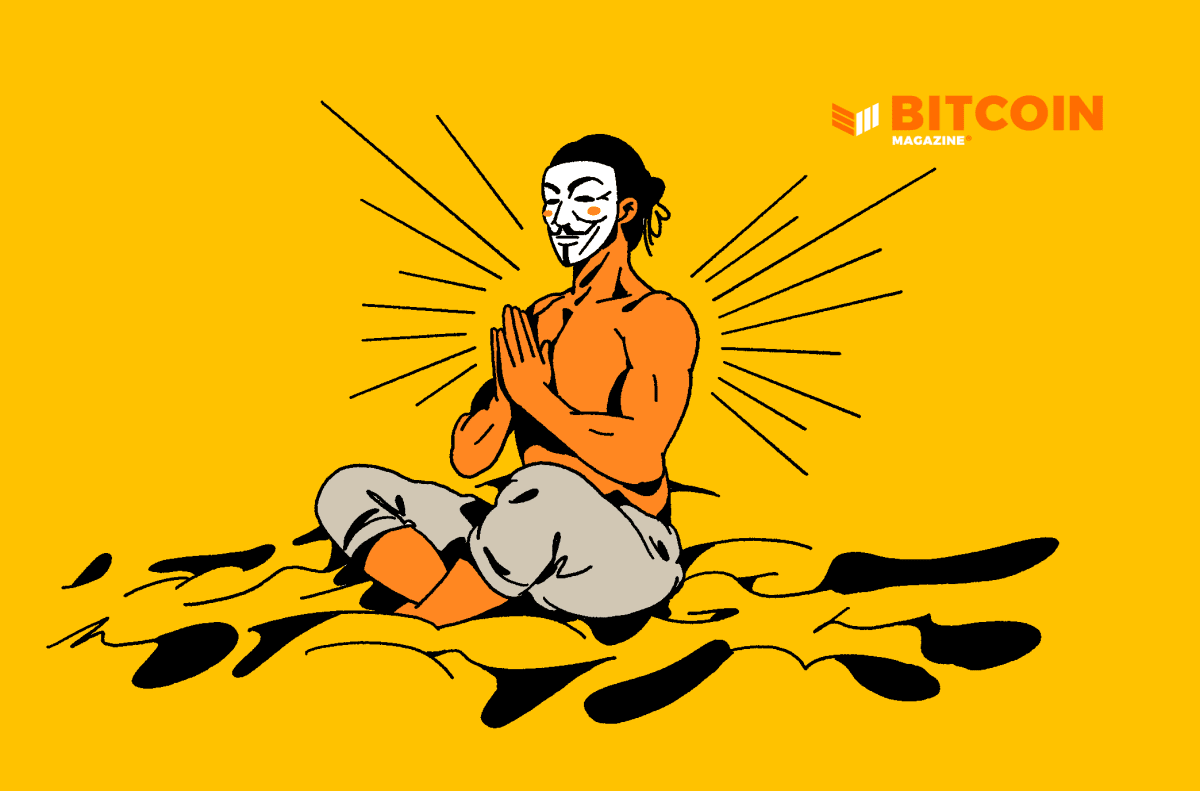This is an opinion editorial by Moon, a Bitcoin Maximalist, writer and practitioner of capoeira.
Capoeira, often superficially described as “dance-fighting,” is a self-defense style that arose organically out of the forced melding of cultures between different African peoples enslaved in Brazil in 18th and 19th centuries (though its history is likely older than this). Today, capoeira has evolved into a popular and globally-recognized martial art, known for devastating kicks, devious sweeps and dazzling acrobatics. Presented are examples of capoeira being played slowly and beautifully, quickly and acrobatically and more aggressively with takedown attempts..
Behind all of the flashy moves, however, is a much deeper essence. The true seeker finds that capoeira is a way of being that fully encompasses African expressions of fight, dance, music, art, ritual, spirituality and philosophy into one in a pursuit of liberation. Over the centuries, capoeira has been shepherded, protected and propagated by a nomadic, decentralized, warrior-sage-trickster culture that has rebuffed every attempt to suppress, institutionalize, centralize or destroy it.
But what does any of this have to do with Bitcoin?
First, in capoeira (which I have practiced since 2005) and in Bitcoin, I see kindred cultures of liberation that can learn from and benefit one another. I believe the two complement each other extremely well as parallel paths for radical liberation, one through body discipline and the other through sound money and both, interestingly, building up similar habits of mind.
Second, where much of “Bitcoining” is objective, rooted in mathematics, capoeira is much the opposite — capoeira is a mystery: fluid, emergent, always changing, always challenging, a thing to be experienced but never fully known. Yet, despite these differences, just like Bitcoin, capoeira bends the practitioner into embracing unending learning and demands the practitioner’s acceptance of ceaseless, unyielding change. We capoeiristas say “capoeira changes you,” and as Bitcoiners, we know full well that Bitcoin does the same.
Finally, capoeira is a practice that forces the development of jest and “good humor” — the ability to strike and take strikes, to both fall hard and knock others down just the same, all with a laugh and a genuine smile — and a presence devoid of heavy emotions like anger, jealousy or pride. In this, capoeira, while still fully acknowledging a dangerous and adversarial world, offers a healthy counterbalance to the type of dour humorlessness that sometimes finds us in Bitcoining.
Let us consider some other interesting parallels…
If You Like Bitcoin, Consider Capoeira
Mysterious Origins
Much as the real-world identity of Satoshi Nakamoto is unknown, the true genesis of capoeira is unknowable — a secret lost to time in the wide, dark belly of the Middle Passage. However, much like with Nakamoto’s identity, many competing theories and much debate on the subject of capoeira’s origins persists.
Pseudonymous, Outlaw Culture
Capoeira was persecuted in Brazil and even formally outlawed from the 1890s to 1930s. Pushing capoeira underground gave rise to the “apelido,” or nickname — used to shield the practitioners’ legal identities from the state and from each other. If one capoeirista was caught by the law, they’d have no one else to give up — the most a lawman could get would be a list of silly aliases that could represent anyone. Today, many capoeiristas will simply introduce themselves by their apelido — and, as with a Bitcoiner’s “nym,” no further questions need be asked.
Leaderless Decentralization
While there are now and have always been leaders in capoeira, there is no leader of capoeira. Each mestre (master) teaches in their own way, each group is different and the groups themselves are constantly merging, separating and reforming. And, as the human body is the only requirement for the practice, capoeira exists wherever the people are, which is to say, anywhere and everywhere. No wonder past attempts to exterminate it have always been futile. This is, of course, an inspiring parallel to Bitcoin’s own decentralized and leaderless persistence.
Adversarial Mindset
Where Bitcoiners speak of “OPSEC,” the capoeirista has “malícia” — a heightened and ever-present adversarial awareness. However, in the game of capoeira (you do not fight capoeira, you play capoeira), players do not block attacks, rather, they move with the attack, dodging out of the way. Thus emerges capoeira’s revolving, circular game of “flow,” where every defense sets up the next counterattack and every attack finishes in defensive/evasive posture. The skilled capoeirista is always thinking several moves ahead, anticipating their opponent and changing their movements in an attempt to misdirect, confuse and entrap. In the larger game of everyday life, malícia manifests as an adeptness in reading people, the ability to anticipate human situations well before they arise and, therefore, to position accordingly.
Radical And Asymmetrical Liberation
Capoeira is an artifact of slavery and oppression. It empowers the individual, particularly one who cannot afford to attack head on, to leverage every part of their body — hands, feet, elbows, knees, arms, legs, hips, head, torso — and even to pursue extended periods of inversion, as unexpected and shockingly effective tools of self defense. And in so liberating the body, capoeira also unshackles the practitioner’s mind to think and see differently, and to plan for or to put into motion whatever is most unexpected — to become adept in navigating the vagaries of an unpredictable and unjust world.
In the historical context, capoeira has always been a “sly, roundabout” thing that the system could not stop. Capeoria stood as an asymmetrical challenge-resistance to the prevailing, exploitative system of its time. Similarly today, Bitcoin provides an asymmetrical “opt-out” of the fiat system, especially for those who cannot confront the system head on. Here, Bitcoin allows us all to behave like capoeira players, foiling rather than fighting, dodging rather than engaging, and placing ourselves always just out of reach of the system’s attacks.
What Can These Communities Learn From One Another?
So, what then can the Bitcoiner learn from capoeira? And what can the capoeirista learn from Bitcoin?
For the Bitcoiner, capoeira can offer a greater appreciation of whimsy, play and mystery, along with unexpected avenues to physical fitness, self defense and cultural enrichment. While capoeira can be plenty lethal when necessary, it cares not about winning or losing. Capoeira is not to beat, dominate or destroy an opponent — capoeira is simply to play — to enjoy the thrill of the danger and to revel in the beauty and mystery of conversation made by human bodies in motion. Capoeira teaches you to defend yourself, to think differently and to think ahead, to be of fit body and sound mind, but also to dance and laugh well always — because one day, surely, you will die — so you had better enjoy the ride.
For the capoeirista, well, Bitcoin offers what it offers everyone: true liberation to store value, free from theft and debasement. But here, the capoeirista ought to find double significance, as this is so much of what was denied to the very people who created capoeira under the heavy, thieving chains of slavery. Bitcoin is also a perfect complement to capoeira’s culture of individualism, liberation, wandering and informal economy. Finally, Bitcoin stands to free people, particularly people in “the third world” from money and systems that oppress and steal, an objective that couldn’t be more aligned with the heart and history of capoeira.
Bitcoin and capoeira, the two most enriching communities I have been fortunate to be part of: I do hope that you might learn from each other. Axé and happy Bitcoining!
This is a guest post by Moon. Opinions expressed are entirely their own and do not necessarily reflect those of BTC Inc or Bitcoin Magazine.
Credit: Source link




























